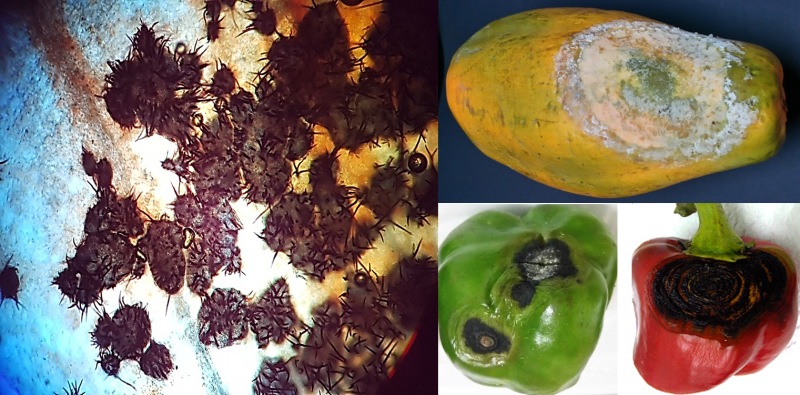Pathogen profiling of fungal phytopathogens

- Food availability: The availability of sufficient quantities of food of appropriate quality, supplied through domestic production or imports.
- Food access: Access by individuals to adequate resources (entitlements) for acquiring appropriate foods for a nutritious diet. Entitlements are defined as the set of all commodity bundles over which a person can establish command given the legal, political, economic and social arrangements of the community in which they live.
- Utilization: Utilization of food through adequate diet, clean water, sanitation and health care to reach a state of nutritional well-being where all physiological needs are met. This brings out the importance of non-food inputs in food security.
- Stability: To be food secure, a population, household or individual must have access to adequate food at all times. They should not risk losing access to food as a consequence of sudden shocks (e.g. an economic or climatic crisis) or cyclical events (e.g. seasonal food insecurity).
A fundamental threat to food security is plant disease – origins, economic impact, host-pathogen relationships, pathogen diversity, integrated management, chemical resistance. Research conducted in respect of the above, therefore, includes the following:
- Genetic profiling of economically important fungal phytopathogens in Trinidad, i.e. genetic diversity/genotyping/haplotyping, population structure, gene flow, migration, and transboundary movement, phylogenetic relationships of local isolates and in relation to global isolates
- Monitoring fungicide resistance; identifying mutations associated with fungicide resistance; development of tools to investigate compounds of biological interest as fungistatic or fungicidal agents
Research Team Members: Dr. Sephra Rampersad (primary investigator), Rhonda Latchoo (postgraduate student), Amanda Ramdass (research assistant and postgraduate student), Vijai Ramdhan (Biochemistry Laboratory Technician), Stephen Narine (Field Assistant)






